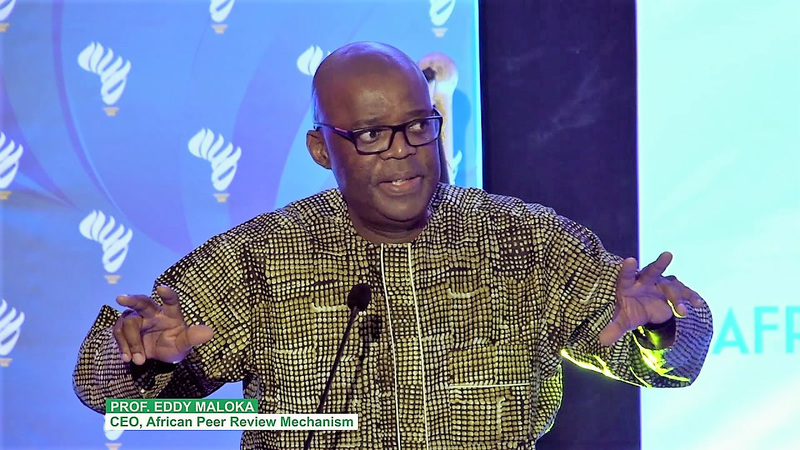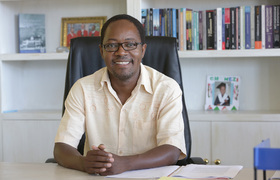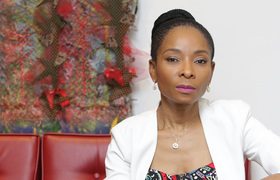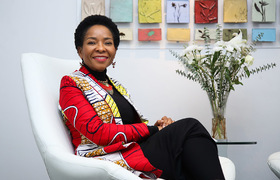‘Helping move UCT forward is my priority’
06 February 2019 | Story Niémah Davids. Photo YouTube. Read time 5 min.
Understanding the many challenges facing the University of Cape (UCT), and lending a hand to finding solutions to these, is a priority for incoming president of Convocation Professor Eddy Maloka.
Maloka is the chief executive officer of the African Peer Review Mechanism, an organ of the African Union (AU). He holds a PhD in history from UCT and comes with a wealth of experience as both an academic and a diplomat. He takes the reins from Lorna Houston, who served as head of the university’s alumni forum from 2017.
“I am humbled and touched that I have been selected to serve as the president [of Convocation]. I owe so much of my personal and professional development to UCT. I am excited to give back to the institution that has truly helped to mould me into the man I am today,” he said.
UCT’s Convocation is a statutory body administered by the Office of the Registrar. It provides a platform for alumni to actively participate and engage in pertinent issues affecting the university community, and to help find solutions.
Maloka’s appointment comes at a critical time for the institution, with the university’s executive committed to speeding up transformation and inclusivity on campus.
Moving UCT forward
Maloka was a former student activist and member of UCT’s student movement in the 1980s – a tumultuous time in South Africa’s history. Now, he said, moving the institution in the right direction, by making a valuable contribution to the university community, is high on his list of priorities.
Ticking this box will be unattainable, however, without first assessing and understanding the university’s key challenges.
“I really want to understand why UCT is dealing with the same issues as in the [19]80s. It’s a different generation and it’s a completely different time, yet many of the issues remain the same. I seek answers to that very important question,” he said.
“I really want to understand why UCT is dealing with the same issues as in the [19]80s. It’s a different generation and it’s a completely different time, yet many of the issues remain the same.”
Creating an inclusive and transformed higher learning environment “reflective of the new South Africa” is possible with hard work and dedication, Maloka emphasised.
But change won’t happen overnight. While he acknowledged the “ongoing and outstanding work” of the university to date, he said there is more to be done. In his new role he will start with identifying the university’s main challenges, and draw on the past and present student network to seek out solutions.
“I would like my experience to be a resource to reshape and benefit this wonderful institution. I can’t do it alone. There’s a plethora of UCT graduates out there who can make a valuable contribution to this university, and we need them.
“Collectively we can achieve great things.”
All-encompassing role
Of his appointment as president of Convocation, Maloka said he is filled with pride. It gives him the opportunity to re-enter the university community he left behind many years ago and to share the experience he’s gained as an academic and a diplomat.
There’s a lot more to his role than attending quarterly meetings and annual general meetings once a year. And while he has yet to receive the full outline of his responsibilities, Maloka said he looks forward to the task.
All he aspires to is to play an active role in the university community and, in doing so, help generate ideas and solutions to issues that concern the institution.
“I am here to serve UCT and to draw in more alumni who can do the same. I am a solutions-driven thinker. UCT can count on me to make a contribution and to help move the university forward,” he said.
 This work is licensed under a Creative Commons Attribution-NoDerivatives 4.0 International License.
This work is licensed under a Creative Commons Attribution-NoDerivatives 4.0 International License.
Please view the republishing articles page for more information.










